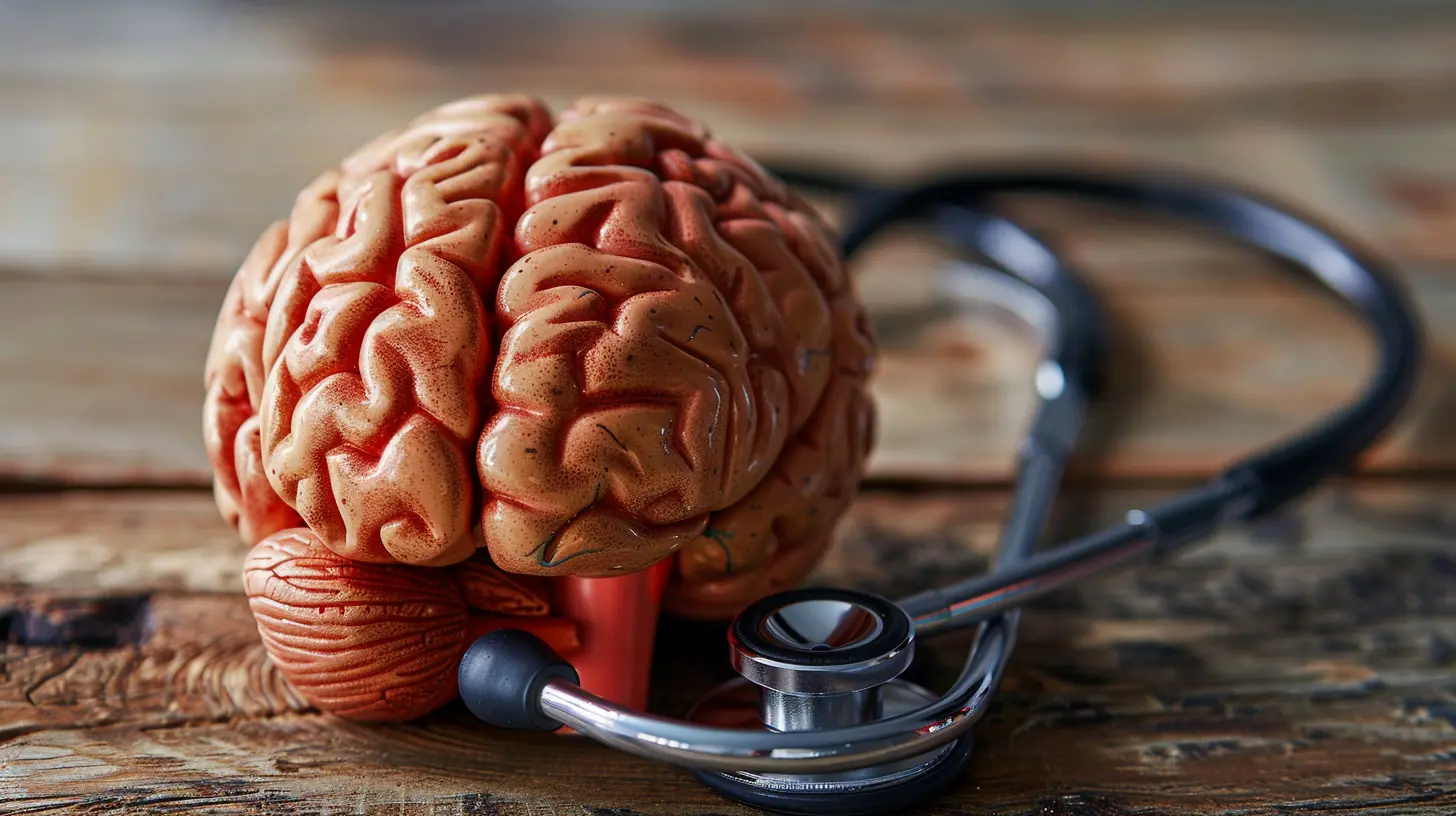Can a Healthy Heart Lead to a Healthier Brain?
26 August 2025
Alright, let’s get real for a second—most of us don’t think twice about our heart health unless something feels wrong. And when it comes to brain health, well, we just assume a few crossword puzzles and memory games will keep our minds sharp forever, right? Wrong!
Here’s the deal: Your heart and brain are way more connected than you think. In fact, taking care of one directly impacts the other. Yep, a healthy heart can actually lead to a healthier brain! So, if you’ve been neglecting cardio and munching on junk food like there’s no tomorrow, it’s time for a reality check. Let’s dive into the science (in a fun way, of course) and uncover why your heart holds the key to keeping your brain in top shape. 
The Heart-Brain Connection: More Than Just a Metaphor
You know how people say, "Follow your heart," as if it’s some deep, emotional guidance system? Well, turns out your heart is also connected to your brain in a literal, biological way. These two powerhouse organs rely on each other to function properly, and if one suffers, the other will too.Think of your body as a complex highway system. Your heart is the engine that pumps oxygen-rich blood, delivering fuel to all your organs—including your brain. If that engine starts stalling due to clogged arteries, high blood pressure, or poor circulation, your brain isn’t getting the nutrients and oxygen it needs to thrive. And guess what? That can lead to some serious cognitive issues down the road.
The Role of Blood Flow in Brain Health
Your brain is super needy—it consumes about 20% of your body's total oxygen supply. Without a steady flow of oxygenated blood, neurons (your brain’s little messengers) start to slow down, die off, or misfire. This can cause memory problems, difficulty concentrating, and even increase your risk of neurodegenerative diseases like Alzheimer’s.So, if you want to keep your brain sharp as a tack, you better make sure your heart is pumping efficiently! 
Heart Health and Cognitive Decline: The Shocking Link
Let’s cut to the chase—poor cardiovascular health is a one-way ticket to cognitive decline. High blood pressure, high cholesterol, diabetes, and obesity all play a role in damaging blood vessels, reducing circulation, and increasing inflammation. And guess what? That inflammation doesn’t just affect your heart; it screws up your brain function too.High Blood Pressure = High Risk for Dementia
Ever heard of vascular dementia? It’s a brain disorder caused by reduced blood flow to the brain. And what’s the #1 culprit behind this condition? You guessed it—high blood pressure! When your blood pressure is consistently high, it damages the tiny blood vessels in your brain, making it harder for neurons to communicate. The result? Memory loss, confusion, and mental slowdowns you definitely don’t want.Heart Disease and Alzheimer’s – A Scary Duo
Studies have shown that people with heart disease are more likely to develop Alzheimer’s. Why? Because plaque buildup in arteries restricts blood flow, leading to chronic inflammation that damages brain cells. Simply put, an unhealthy heart can speed up brain aging and put you at greater risk for cognitive diseases.Bottom line? If you’re not taking care of your heart, you’re practically inviting dementia to crash at your place when you’re older. And trust me, that’s a guest you don’t want. 
How to Keep Both Your Heart and Brain in Top Shape
Now that we’ve established the undeniable connection between heart and brain health, let’s talk solutions. The good news? The same habits that keep your heart strong also work wonders for your brain.1. Get Moving!
Exercise isn’t just about looking good in jeans—it’s essential for keeping your heart (and brain) in tip-top shape. Aerobic exercises like jogging, swimming, and cycling improve circulation, lower blood pressure, and boost oxygen supply to the brain. Even brisk walking for 30 minutes a day can make a big difference!Pro tip: Want an added brain boost? Try dance workouts or sports that require coordination—these increase brain plasticity and enhance cognitive function.
2. Eat Like You Love Your Body
Your diet plays a massive role in heart and brain health. If you’re living on processed foods, sugary drinks, and greasy fast food, you’re doing yourself zero favors. Instead, focus on:- Heart-healthy fats (avocados, nuts, olive oil)
- Omega-3s (salmon, flaxseeds, walnuts)
- Leafy greens (spinach, kale, arugula—your brain loves this stuff!)
- Berries (loaded with antioxidants to fight inflammation)
- Whole grains (oatmeal, quinoa, brown rice—good for blood flow)
A Mediterranean-style diet is one of the best for keeping both your heart and brain happy. So, maybe it’s time to swap that burger for a salmon salad?
3. Manage Stress Before It Manages You
Chronic stress is straight-up toxic for your heart and brain. It increases cortisol levels, leads to high blood pressure, and can even shrink brain tissue over time. Yikes!Make stress management a priority. Whether it’s through meditation, yoga, deep breathing, or just jamming out to your favorite playlist, find ways to chill out.
4. Get Quality Sleep (No, 4 Hours Isn’t Enough)
Sleep is like a nightly reset button for your body. Poor sleep increases the risk of heart disease and messes with cognitive function. Aim for 7-9 hours of deep, restful sleep to let your brain detox, repair, and strengthen neural connections.Pro tip: Keep your room cool, dark, and free of screens for better sleep quality. Your Instagram feed can wait until morning!
5. Stop Smoking and Cut Back on Booze
Smoking damages blood vessels, reduces oxygen supply, and basically wreaks havoc on both your heart and brain. Alcohol? A little here and there is fine, but excessive drinking increases the risk of high blood pressure and memory problems. If you’re serious about longevity, it’s time to kick these habits to the curb.
The Verdict: Your Heart and Brain Are Soulmates
The relationship between your heart and brain is one of the most important (and underrated) connections in your body. If you want to stay sharp, focused, and full of energy as you age, it all starts with taking care of your heart.So, let’s make a deal—no more excuses. Start moving, eat better, reduce stress, and get some quality sleep. Your brain will thank you later!
Remember, a healthy heart isn’t just about living longer—it’s about living better. And that, my friend, is worth every effort.
all images in this post were generated using AI tools
Category:
Brain HealthAuthor:

Angelo McGillivray
Discussion
rate this article
1 comments
Julia McCoy
Absolutely! Research shows a healthy heart promotes better blood flow, which is essential for brain health. Prioritizing cardiovascular wellness can significantly enhance cognitive function and reduce the risk of dementia.
September 5, 2025 at 2:27 PM

Angelo McGillivray
Thank you for highlighting the crucial link between heart health and cognitive function! Prioritizing cardiovascular wellness is indeed vital for maintaining brain health.


